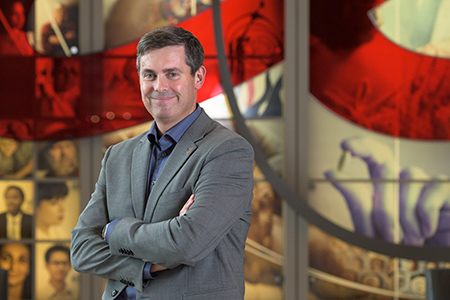Subscriber Benefit
As a subscriber you can listen to articles at work, in the car, or while you work out. Subscribe NowDavid Ricks took the reins as CEO of Eli Lilly and Co. in January and quickly made his mark with a series of leadership changes, restructuring, employee buyouts, pipeline culling and the potential sale of a major division.
It’s been a whirlwind of activity at the Indianapolis-based drugmaker under Ricks, who has acknowledged he is impatient and has “a high motor.”
His predecessor, John Lechleiter, who retired in December after eight years as CEO, once described Ricks as having “an overdeveloped sense of urgency.”
It was supposed to be a quiet time for the 141-year-old company, following a tumultuous decade in which many of its top-selling products lost patent exclusivity. But Ricks didn’t waste any time putting his own stamp on the company.
Within six months, three high-level executives—CFO Derica Rice and vice presidents Bart Peterson and Alex Azar—announced plans to leave.
In September, Lilly announced it would cut 3,500 jobs worldwide, or 8.3 percent of its workforce, by the end of the year in an effort to save $500 million. Most of the cuts will come through early buyouts, but Lilly hasn’t ruled out layoffs as well.
For Lilly, the cutbacks represent the largest single workforce reduction since the company announced in 2009 it would cut 5,550 jobs and $1 billion in costs.
In October, Lilly said it was reviewing whether to sell or spin off its Elanco animal health business, a 64-year-old mainstay that employs more than 5,000 people, including about 800 at its Greenfield headquarters.
As he reshaped the business, Ricks announced support for Republicans’ plan to repeal and replace President Obama’s Affordable Care Act. “There’s a chance to get that right this time,” he said in February.
He also helped lead the charge for the Republicans’ tax overhaul, saying it would give companies more money to invest in plants and equipment and create new jobs.
For his work, Ricks has been given a first-year compensation package worth up to $12 million, including a base salary of $1.4 million, a cash bonus of up to $2.1 million, and stock incentives with a grant value of $8.5 million.•
Please enable JavaScript to view this content.

